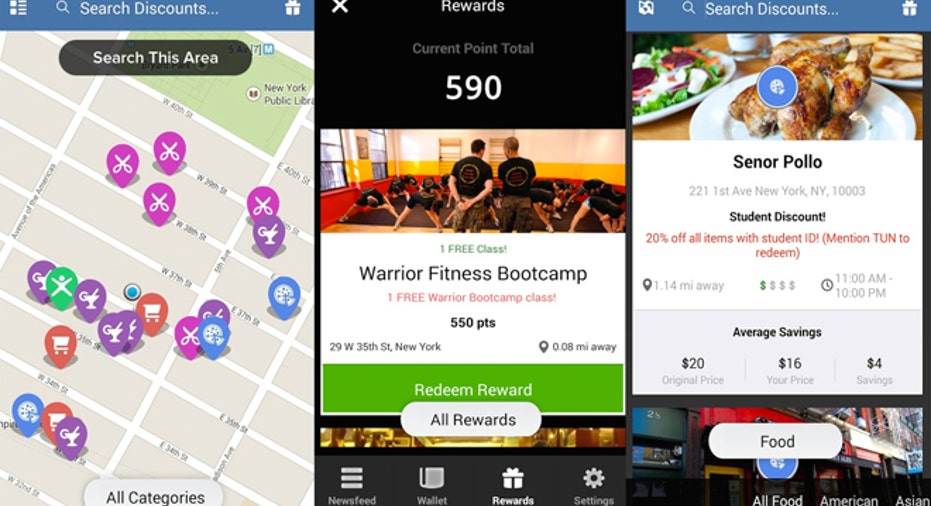TUN App Aims to Disrupt Debt by Helping Students Save

For cash-strapped college students, every penny saved is precious.
But whether the money saved goes toward a cup of coffee, new pair of jeans, text books, or repaying their student loans later on, new research from the global Cassandra Report suggests a good chunk (30%) of Gen Yers believe leading frugal lives is the only way to go.
In fact, the report found 44% of millennials describe themselves as frugal; and with student debt at record highs, it’s no surprise more than 50% say a “life of debt” is their new reality.
To top that off, less than a quarter of Gen Yers feel like they have a good hold on their financial knowledge, according to the same report. And adding fuel to the fire, this week, Fidelity released its first Millennial Money Study, which found that one in four millennials trust no one for money advice.
Jamie Gutfreund, CMO of Noise, The Intelligence Group, says it’s not all bleak news from this age group, which she calls “millennialmilists,” based on their minimalist attitudes and tendency to prioritize happiness over wealth. She says one thing her team consistently hears is that Gen Yers across the global board want better financial guidance. With their tech smarts, they’re getting this education and finding clever money saving tech tools.
Enter: The University Network (TUN), an app and website that offers discounts, rewards and other financial resources for college students.
Launched in 2011, TUN’s founder Peter Corrigan set out to devise a business model that would ease the trillion-dollar financial burden American college students carry, while propping up local businesses.
Corrigan talks about the big economic picture that prompted him to tackle the bloated student debt amount. Students spend about $540 billion a year, Corrigan explains. Seventy percent of that is spent on tuition and room and board. The remaining 30% is spent on everything else including food, clothes, books, haircuts.
“A lot of people are focusing on tuition costs and wanting to address that to help bring the student debt crisis down,” Corrigan says. “But when we started looking at this nobody was looking to help students save on everything else they were spending on.”
Using his background in tech and advertising, Corrigan created a digital concierge service for students to find deals around them. TUN is partnered with over 12,000 merchants nationwide and has about 135,000 students regularly signing on to the app. In addition to discounts, which range from 10 to 20% and often times up to 50%, TUN now offers a points-driven rewards program, where students get freebies for participating and promoting local merchants on social media through the app. So far, businesses have given out about $30,000 in free stuff per year.
Business is booming: TUN’s traffic is up 85% since April.
NYU music technology graduate student Eric Stern estimates that since he started using the app last December, he’s saved several hundred dollars. He found out about the app on Facebook from a friend, and after winning a free open bar, he hasn’t looked back.
The app doesn’t just benefit 20-somethings: For local business owners, it’s a great way to make customers out of cost-conscious students. Marc Sprung, part-owner of Church Street Boxing in Lower Manhattan, says at least once a week they have students come in because they heard of them on TUN. Sprung says right away they learned their base membership price was out of the price range for students, and have since modified their offerings. One of the discounts Church Street Boxing offers is a 10-pack bundle for $99, down from the normal rate of $249.
College students are “a very attractive demographic for us,” and TUN “gives us a really targeted approach to a demographic that is very valuable to us,” Sprung says.
For Corrigan, the bottom line is helping college students keep their expenses down.
“It’s necessary to disrupt that space,” he says.



















